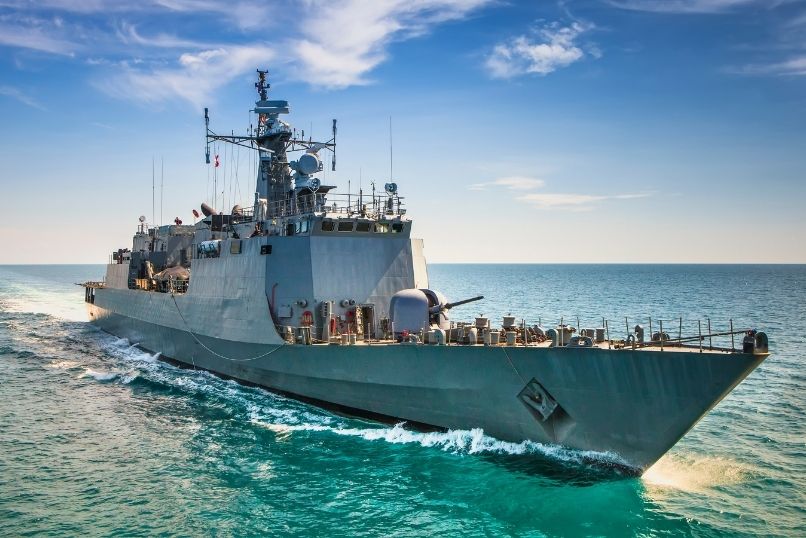Aluminum and its alloys are used in many different ways, especially in the naval industry. Manufacturers often use these strong alloys to make ship hulls, deckhouses, doors, hatch covers, and even windows. Continue reading to discover the benefits of aluminum in naval ship structures.
Corrosion-Resistant Properties
Every metal or alloy that encounters water must have high corrosion-resistant properties. If a metal alloy has low corrosion resistance, rust will eat away at it and weaken the metal over time. Any metal that manufacturers use for the naval industry has impressive corrosion-resistant properties.
Light Weight
Aluminum is a lightweight metal, making it a popular choice for both the aerospace and naval industries. In fact, aluminum is three times lighter than steel, another common alloy that professionals use for shipbuilding. Even though aluminum is lightweight, it’s also strong and flexible. This means manufacturers can easily shape it into strong and durable parts for their ships. This malleable and lightweight quality makes aluminum an excellent metal to use for all types of machines that we use for transportation, including ships, cars, airplanes, and trains.
Improved Fuel Efficiency
Because aluminum is lightweight, many ships with aluminum parts have better fuel efficiency than those that do not. While ships that are made with steel parts are certainly strong, they do not receive the same fuel efficiency as those with aluminum or aluminum alloys. While some aluminum alloys, such as an aluminum bronze alloy, add various metals to make the resulting material stronger, these alloys still retain a light weight.
High Durability
The final benefit of aluminum in naval ship structures is its durability. Through rough seas and dangerous storms, manufacturers count on aluminum ship parts to stand strong against the pressure from waves and the environment. Even though aluminum is not stronger or more durable than steel by itself, aluminum alloys have impressive strength and will last for many years.

